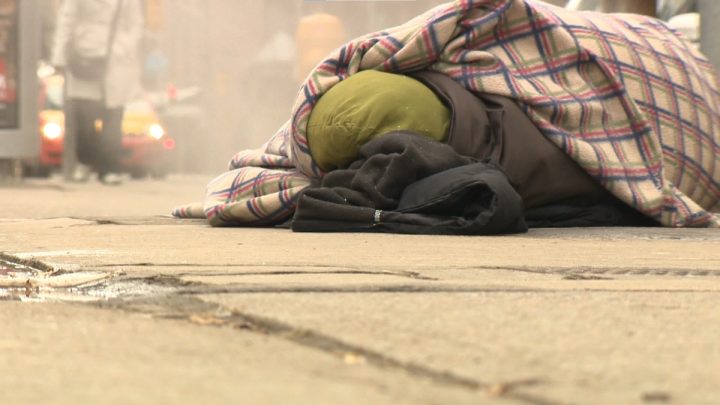City officials and service providers in London, Ont., are shedding light on a new winter response to homelessness plan that aims to support nearly 400 people daily.

This will mark the third consecutive year that the City of London and partner agencies have put together a seasonal program aimed at supporting the unhoused population during the winter months.
The 2022-2023 edition looks to build on existing resources and is backed by a $5 million commitment from the city.
The money is drawn from social services relief funding from the province, COVID-19 relief funding from the federal government’s Reaching Home program and municipal funding that’s already been budgeted by the city, according to Kevin Dickins, London’s deputy city manager for social health and development.
“Our lead agency London Cares, they’re going to receive the bulk of the funding and provide additional funding agreements to other organizations that are involved,” Dickins added.
“Then we’ll have some funding dedicated to Atlohsa Family Healing Services as they’re going to continue to provide an Indigenous-led winter response and they’re going to get a little bit of bridge funding as they continue their work on their Indigenous homeless prevention plan.”
Dickins says his staff were able to skip the wait for council approval by using the delegated authority power granted to London’s city manager Lynne Livingstone. Delegated authority allows Livingstone to make certain approvals and was granted to her once the current council entered its “lame duck” status ahead of the upcoming council’s swearing-in on Nov. 15.

Get breaking National news
“Because of the absolute urgency to get an approval in place as soon as possible, we activated the city manager’s delegated authority to approve the winter response funding request, which allows us to then move quickly to get the funding out the door,” Dickins added.
Along with London Cares and Atlohsa, other organizations involved in the winter response include Unity Project, The Salvation Army Centre of Hope, Ark Aid Street Mission, the Canadian Mental Health Association’s London Coffee House program, Safe Space and 519Pursuit.
London Cares executive director Anne Armstrong says the program will provide 258 daily drop-in spaces which will provide visitors with the essentials “like bathroom, showers, laundry, food.”
There will also be 138 shelter spaces where folks can stay overnight, as well as 58 temporary spaces which will be opened up during cold weather alerts.
Certain spaces are tailored to specific populations, such as couples and pets, women and non-binary individuals and Indigenous community members.
Those spaces are set to open on Dec. 1 and Armstrong says the workload will be shared by multiple agencies.
“We know that homelessness is a complex issue and no one organization or no one sector is going to solve it on its own,” Armstrong said.
The winter response will also establish standardized training and orientation for new staff hired by participating agencies in an effort to better coordinate and unify the support provided.
Armstrong says she’s hopeful there will come a time when London no longer needs a short-term winter response each year, thanks to a permanent long-term solution being implemented.
“It still isn’t going to get everyone that are on the streets inside for the winter. Hopefully, it will get everyone an opportunity to have those very basic needs met, but we really need a multi-sectored, multi-collaborative solution,” Armstrong said.
According to Armstrong, the long-term solution lies in housing, which she says is a prerequisite for addressing the health care and mental health issues associated with homelessness.
“We’re really a big advocate for housing with supports, and more intensive support given the complexity of the issue,” Armstrong said.
The collaboration in this year’s winter response is another essential component for combatting homelessness, which could benefit outreach agencies like London Cares, Armstrong added.
“It would be wonderful if we could have an integrated outreach team where it included psychiatric help, health care, mental health support, food with us all the time,” Armstrong said.
“We do a lot and we meet with so many individuals daily, but we don’t have all that expertise.”













Comments